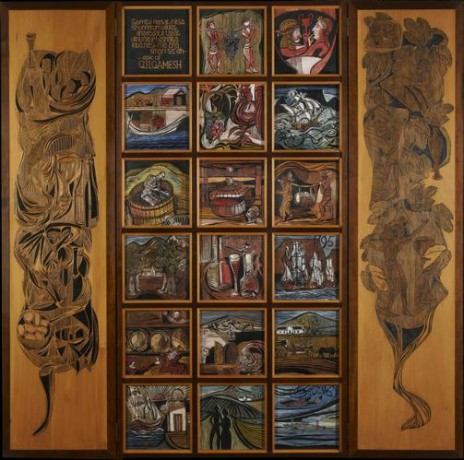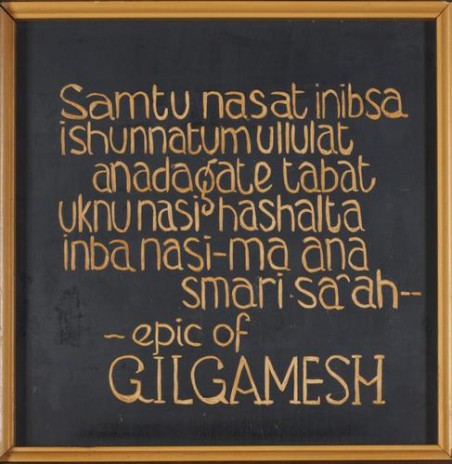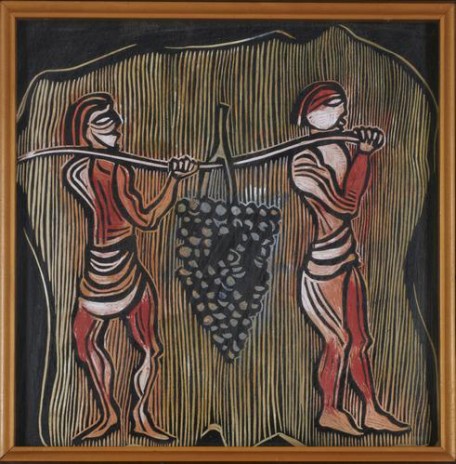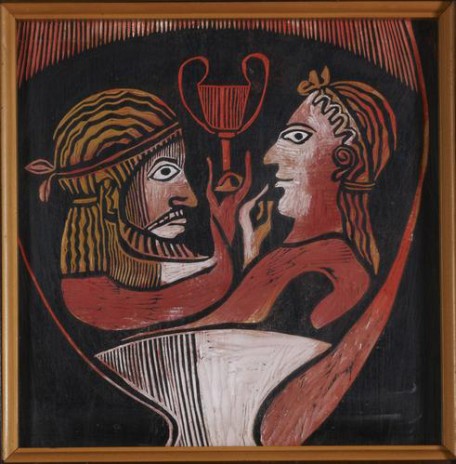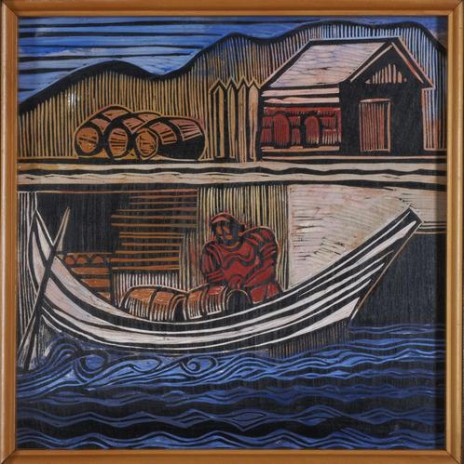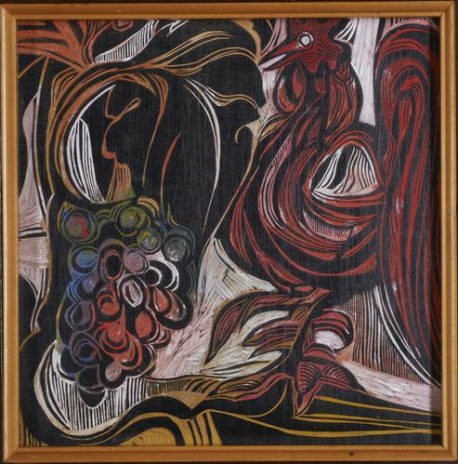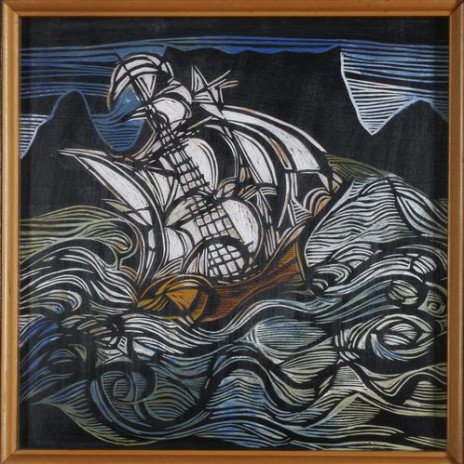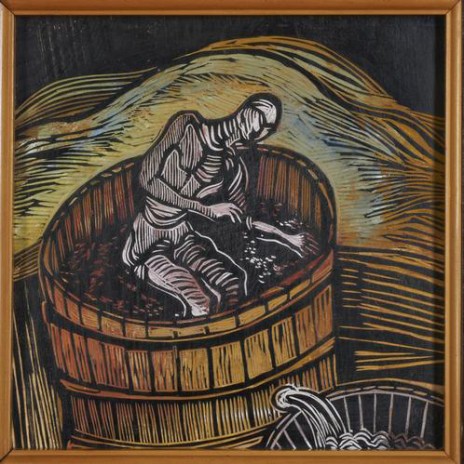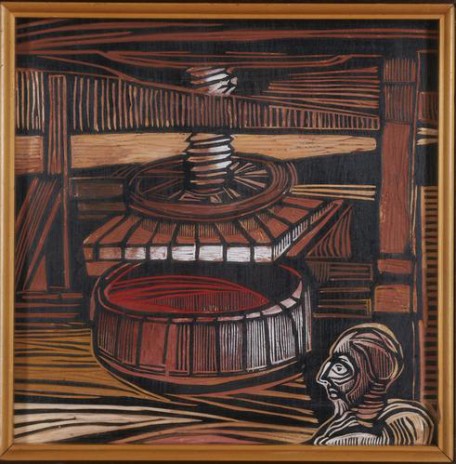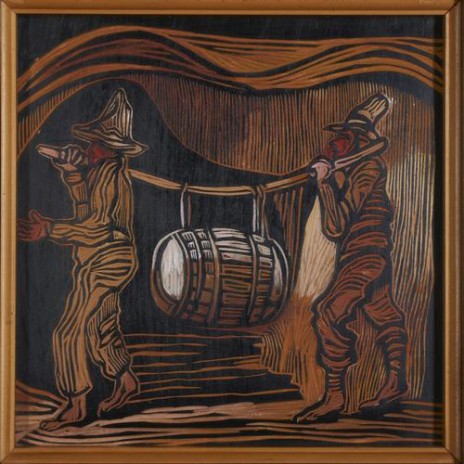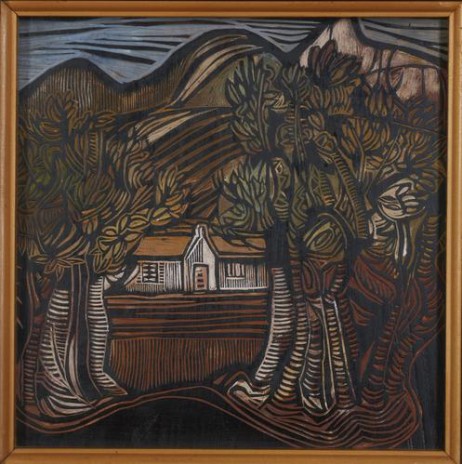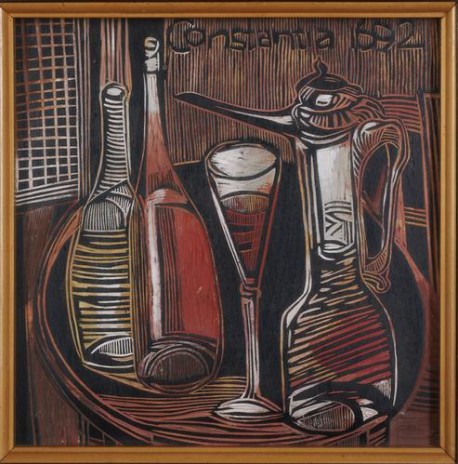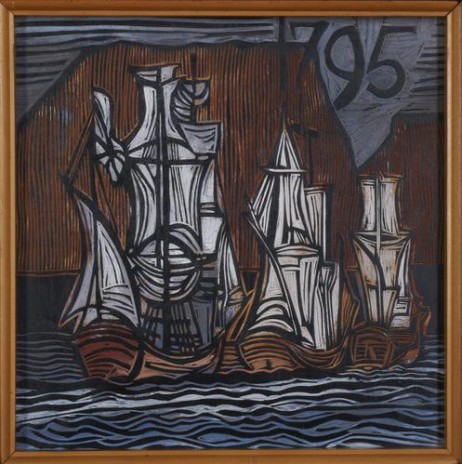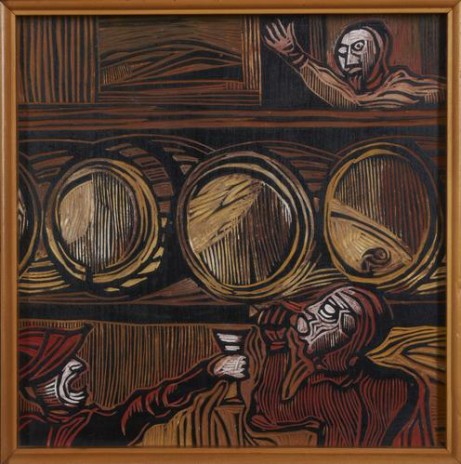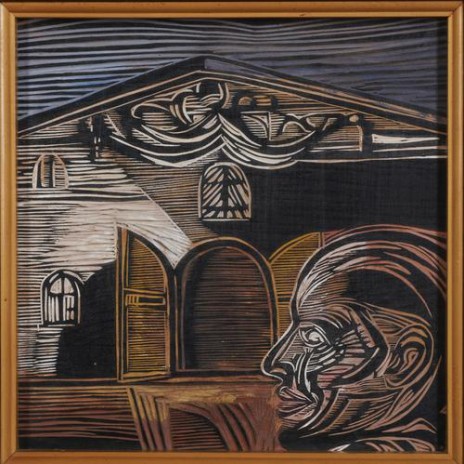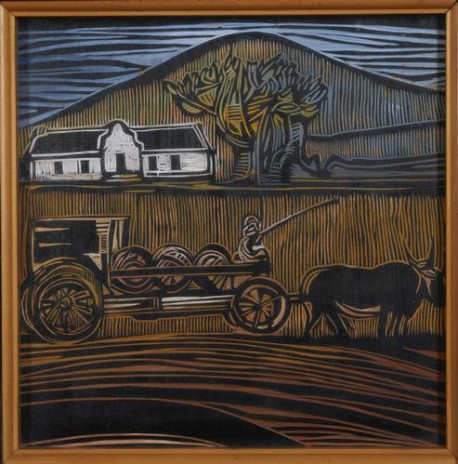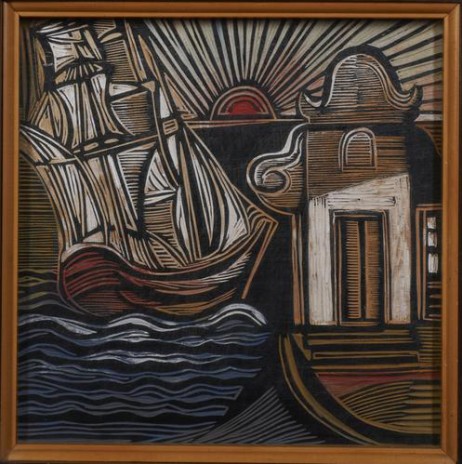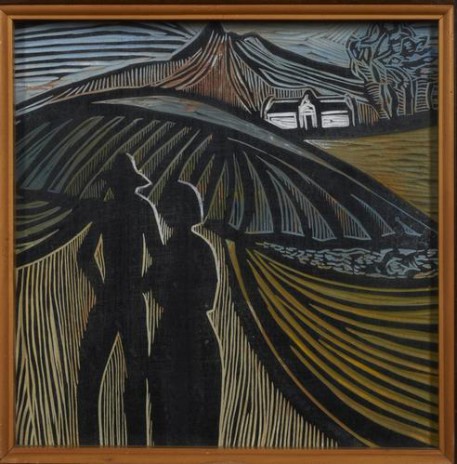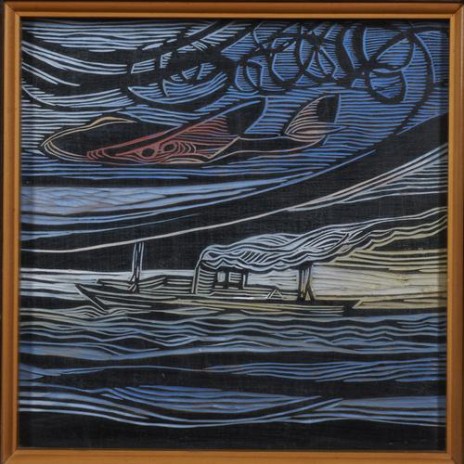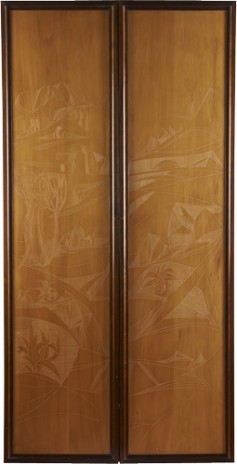In 1977, Cecil Skotnes created an exceptional piece for KWV. Based on one of the oldest stories of humankind, The Epic of Gilgamesh, Skotnes reimagined this story as the Origin of Wine, and translated it into a remarkable wood-carved panel. This work celebrates not only the complex heritage of the wine-making industry in the Cape, but evokes a love for wine which stems from the ancient epoch of Gilgamesh and continues into the present day.
In the Epic of Gilgamesh, Gilgamesh, the king of Urak, fearing his own demise, seeks immortality after the death of his great friend. On his journey he meets Siduri, the young goddess of wine, who tells him that what he longs for is beyond his grasp. The gods, she says, when they made humankind also allotted them death and from that there is no escape. But she gives Gilgamesh good advice: that he should eat and drink good things, be happy and rejoice, that he should care for his person, cherish the lives of children and make others happy, for all this too is the lot of humankind.
Cecil warmly embraced the words of Siduri in the way he lived his life. He loved people and the pleasure of their achievements. He took care to share his time and energies, and his creative gifts with others. He enjoyed good food and wine enormously, for they conjured the satisfaction of friendships, shared meals and good conversation. Above all he believed that immortality could only be achieved through good works, one’s children and the power of art. His painting and art-making were his greatest pleasure.
The commission for KWV represented just the kind of project Cecil loved. The history of wine-making in South Africa, like the epic of Gilgamesh and the epic stories of ancient Greece and of Africa, stirred his imagination. The earliest mention of wine in literature was an opportunity to reflect on a local history of wine-making and to invest his interpretation with the delight of his personal experience of wine-drinking and to celebrate a common humanity across time and space.
KWV again asked Skotnes to create two series of works for their 1979 and 1982 “Art Calendar” projects. The 1982 series depicts twelve extraordinary landscapes from the Cape region, which powerfully capture the unique terroir from which KWV’s wines are produced.
To honour Skotnes and his association with wine, KWV was pleased to present the Epic of Everlasting exhibition, which toured nationally in 2011. Through this exhibition KWV shared their treasures of Cecil Skotnes’ artistry for the first time, and encouraged the public to take part in a unique pairing of wine and art.
Although the Epic of Everlasting Exhibition Tour has come to an end, the KWV Skotnes collection is still on view at Laborie Wine Farm in Paarl.

